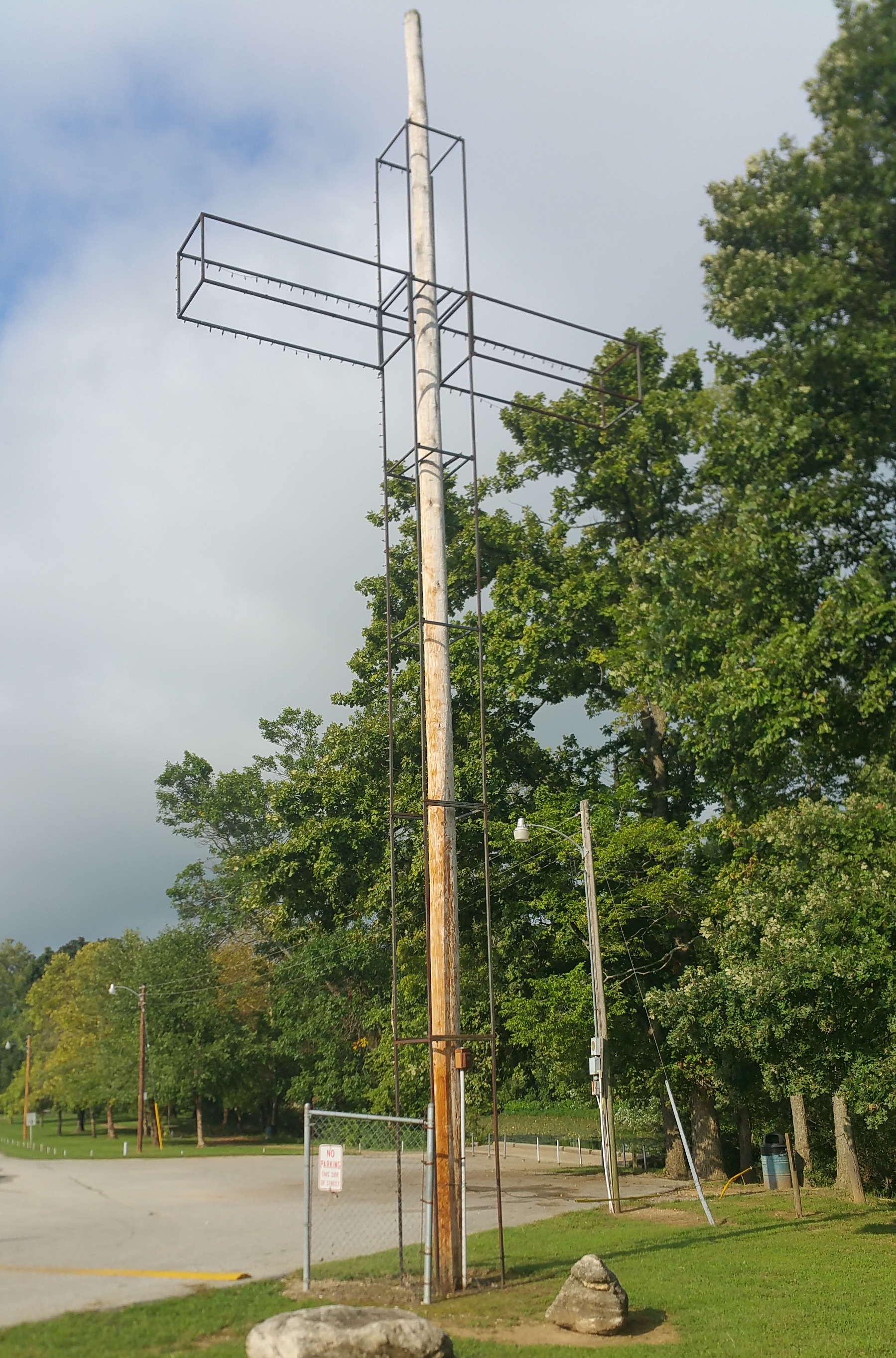
The Freedom From Religion Foundation is taking to task officials in a Missouri town who yielded to pressure from some of its citizens.
Early yesterday, Dec. 11, the city of Ozark issued a remarkable statement indicating that a cross displayed in its Finley River Park violated the Constitution. In the statement, which outlined just how well it understood the law, the city agreed:
The First Amendment of the United States Constitution prohibits the government from making any law respecting establishment of religion. The United States Supreme Court has interpreted this clause, generally known as the Establishment Clause, to prohibit items such as the cross from being displayed by the government on government property. It is the position of the city of Ozark that leaving a religious symbol on public property, in this case a cross, will result in a lawsuit that we will not win.
Therefore, FFRF finds it dismaying that the city reversed course the same day, subsequently stating:
We released a press release earlier with the facts as they have been presented to us thus far. As the day unfolded and citizens commented on this topic, we have determined that in the best interest of all parties we shall continue working through the legalities of the situation. Therefore, the cross in the Finley River Park will remain in place until a further due diligence can be completed regarding this matter.
There was reportedly immense pressure from the community, including key leaders, to keep the cross lit. Mayor Rick Gardner told the media that the cross “is part of Ozark. This is a Christian county, for Pete’s sake.” He ordered the cross to stay lit for the holiday season.
As FFRF mentioned in its initial letter on Nov. 30, an illuminated cross is not a permissible city holiday decoration.
“In ACLU v. St. Charles (1986), the 7th U.S. Circuit Court of Appeals prohibited the city of St. Charles from displaying an illuminated Latin cross on the top of the city’s fire department as a part of its annual Christmas display,” FFRF Legal Director Rebecca Markert reminds City Administrator Stephen Childers in a letter today. “The court stated matter of factly that ‘the cross is not in fact a common Christmas symbol.’”
Even in cases upholding nativity scene displays, courts have found Christian crosses on public property to be legally unacceptable, FFRF emphasizes. The addition of secular items does not alter the premise that a government display of a Christian cross in observance of a holy day is unconstitutional. In the U.S. Supreme Court case, Allegheny v. Am. Civil Liberties Union of Pittsburgh, both the majority opinion and Justice Anthony Kennedy’s concurrence specified that the Establishment Clause would unquestionably prohibit a city from placing its imprimatur on a large permanent cross. The courthouse holiday display of a crèche surrounded by poinsettias was unconstitutional, the court said. The court reasoned that the flowers assuredly could not “negate the endorsement of Christianity conveyed by the cross.” Likewise, a light display in the park does not negate Ozark’s endorsement of Christianity with its cross, FFRF maintains.
FFRF also decries the mayor’s claim of Ozark being “a Christian county.”
“You may claim to be ‘a Christian county’ but this is not true in any meaningful sense. (The county may bear the name Christian County, but it is named after William Christian, a man, not a faith.),” FFRF Co-President Annie Laurie Gaylor writes separately to the mayor. “More than 1.2 million Missourians are nonreligious. By erecting a large Christian cross, Ozark is alienating a sizable number of Missourians and Americans.”
FFRF urges the city of Ozark, while it determines its next step, to be respectful to all its citizens and remove the cross. The U.S. Constitution, fortunately, is not subject to a popularity contest.

